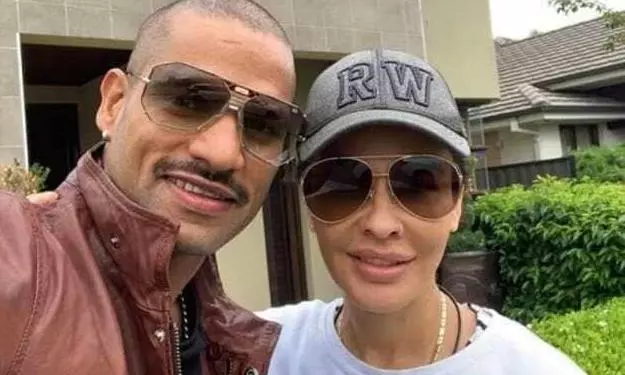
What Shikhar Dhawan said in divorce plea against wife Aesha; how Delhi court responded
Cricketer Shikhar Dhawan was granted divorce by a Delhi court from his estranged wife Aesha Mukerji. What did Dhawan say in his plea and on what grounds was the divorce granted?

Cricketer Shikhar Dhawan has been granted divorce by a Delhi court from his estranged wife Aesha Mukerji on the grounds of “mental cruelty”.
Notably, according to reports, the left hand opener's allegations against wife Aesha went unchallenged, as she did not contest the case after a “reasonable stage”.
When did the couple tie the knot?
Dhawan and Aesha, who is an amateur Melbourne-based kick-boxer, had married in 2012 after meeting through a common friend - cricketer Harbhajan Singh. Despite family disapproval due to the 12- year age gap between them, Dhawan married Aesha. They had a Sikh wedding which was attended by other cricketers and celebrities.
The couple have a 10-year-old son, Zoraver Dhawan. Aesha was previously married and has two daughters with her first husband, an Australian businessman.
When did the couple separate?
After eight years of marriage, the couple decided to part ways. There was a lot of speculation about the spit until Aesha first made the announcement in 2021 via an Instagram post which started with, “I thought divorce was a dirty word until I became a two-time divorcee.” And, she went on to write how she was really scared after her second marriage too broke down and how sometimes "you do your best and try hard but things don’t work out".
What Dhawan said in his petition
In his petition, Dhawan claimed that his wife had promised to move to India to live with him as he could not move to Australia owing to his career commitments. However, soon after, she backtracked and refused to move as it would force her to give up the custody of her two daughters to her ex-husband.
Dhawan said through “no fault of his own” he went through a lot of agony and anguish becaue he had to live separately from his own son for years. He claimed that Aesha had forced him into being in a "long distance marriage" by living in Australia.
Dhawan also said in his plea that he discovered post-marriage that the respondent (Aesha) married him only to extort crores of rupees from him. Shortly after the marriage, she had threatened to fabricate false and defamatory information about him to spoil his reputation and career. According to Dhawan, Aesha forced him to make her the owner of three properties that the cricketer bought in Australia. She owned 99 per cent of one of the properties and was a joint owner in the other two.
Dhawan also alleged that Aesha forced him to pay child support not only for their son but also for her two daughters for whom she already received support payments from her first husband.
Did Aesha contest the divorce?
Notably, Aesha did not contest the divorce. In fact, the judge said that though the wife (Aesha) denied Dhawan's allegation submitting that she genuinely wanted to live in India with him but she did not choose to contest the claim.
Also, since she could not prove that properties were purchased out of her fund as well or her name was included out of love and affection, the judge concluded that she had compelled Dhawan "to make her owner to some extent in all three properties or that she pocketed sale proceeds thereof" has got to be believed as "true".
What the court said
Noting that the marriage between the couple was “dead” since they have been living separately since 2020", Delhi family court judge Harish Kumar observed that Dhawan was subjected to mental agony by his wife.
The fact that Aesha Mukerji’s “intentional decision” to leave this matter uncontested, said the judge, shows that she wanted the court to grant the divorce even if it meant showing her as “guilty of matrimonial offense”. Also, the respondent (Aesha) knew that no harm will come to her even if she is accused of “treating the petitioner with cruelty” because she has obtained favourable orders from the court in Australia.
Does Dhawan get custody of his son?
The court refused to pass any order on permanent custody of the couple's son. The judge granted visitation rights to Dhawan to meet his son for appropriate duration in India and Australia. Dhawan was also allowed to chat with his son over video call.

